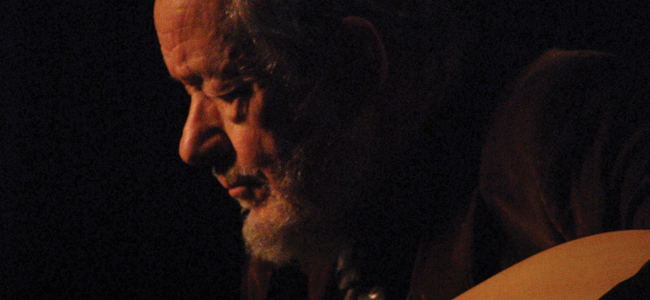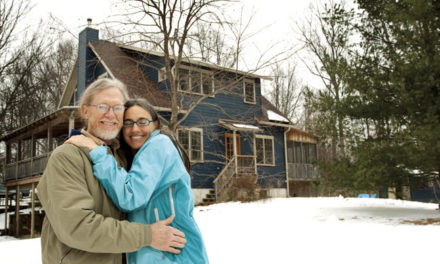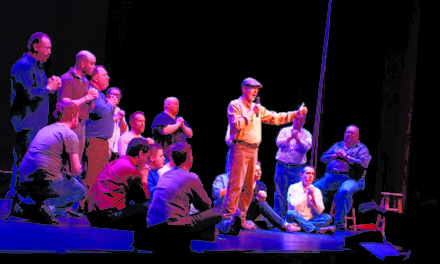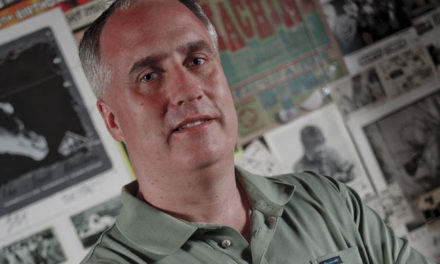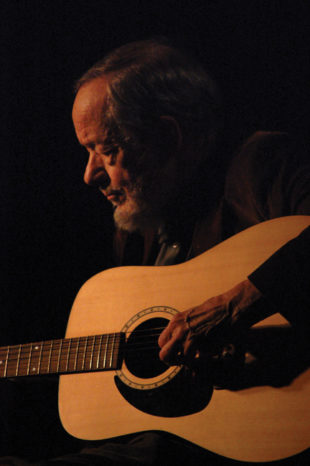
BY MIKE LEONARD
“Where Have All the Flowers Gone?” has been described as one of the top political songs and top folk songs of all time and is closely associated with the life and legacy of its primary author, the late Pete Seeger.
But it’s a little-known fact that two verses of the classic song were written in Bloomington by Joe Hickerson when he was a graduate student in folklore at Indiana University (click here to read the lyrics).
Hickerson was an undergraduate at Oberlin College in the mid-1950s when he first heard Seeger perform the song, which was so new Seeger taped the lyrics to his microphone stand. Shortly afterward, the folk legend recorded what was then a three-verse song, but the recording didn’t appear on an album until Seeger’s The Rainbow Quest was released in early 1960.
In May 1960, Hickerson was finishing up the school year at IU and planning for his annual gig as a counselor at Camp Woodland in Phoenicia, New York. He liked “Flowers” but recalls, “With just three verses, it was over before it started.” So he sat down in his home at 509 E. Cottage Grove Ave. and added a fourth and fifth verse and then repeated the first verse, turning the composition into a circular song.
Hickerson taught the campers at Woodland the expanded song and it quickly became popular. Seeger, a regular visitor, heard the campers singing the longer version and exclaimed, “Good God Almighty!” in Hickerson’s recollection. “He said, ‘Where’d those come from?’ and I said, ‘I wrote them.’”
The song traveled, as well as Hickerson can tell, to sing-outs in New York City to Mary Travers (later of the folk music group Peter, Paul and Mary) to manager Albert Grossman, who passed it to The Kingston Trio, and, believing it was a traditional song, they recorded it without crediting Seeger or Hickerson. They immediately gave Seeger credit when he informed them that it was his song. And Seeger gave Hickerson 20 percent of the song royalties for those valuable fourth and fifth verses.
“I think I bought my first used car from that,” Hickerson says with a chuckle. The royalties aren’t much these days, but they’re steady, around $2,000 a year. Hickerson completed a master’s in folklore and a doctorate in folklore and ethnomusicology at IU and worked for most of his career (1963–98) in those capacities in what is now called The American Folklife Center at The Library of Congress. Today, Hickerson, 79, lives in Portland, Oregon, where he still performs occasionally and continues his research in folk and traditional music.
The song never made much of an impact on his own career, but he recognizes its significance, and its popularity, with versions recorded by actress Marlene Dietrich (in English, French, and German), The Searchers, Eddy Arnold, Johnny Rivers, and numerous others. It’s even been inducted into the Grammy Hall of Fame.
“It’s been a wonder,” he says. “It became so associated with the Vietnam War, and when Pete wrote it in 1955 his reference, if anything, was World War II. In a way, I’m sort of forced to deal with it these days, and my association with Pete Seeger, since his death [in January 2014].”


